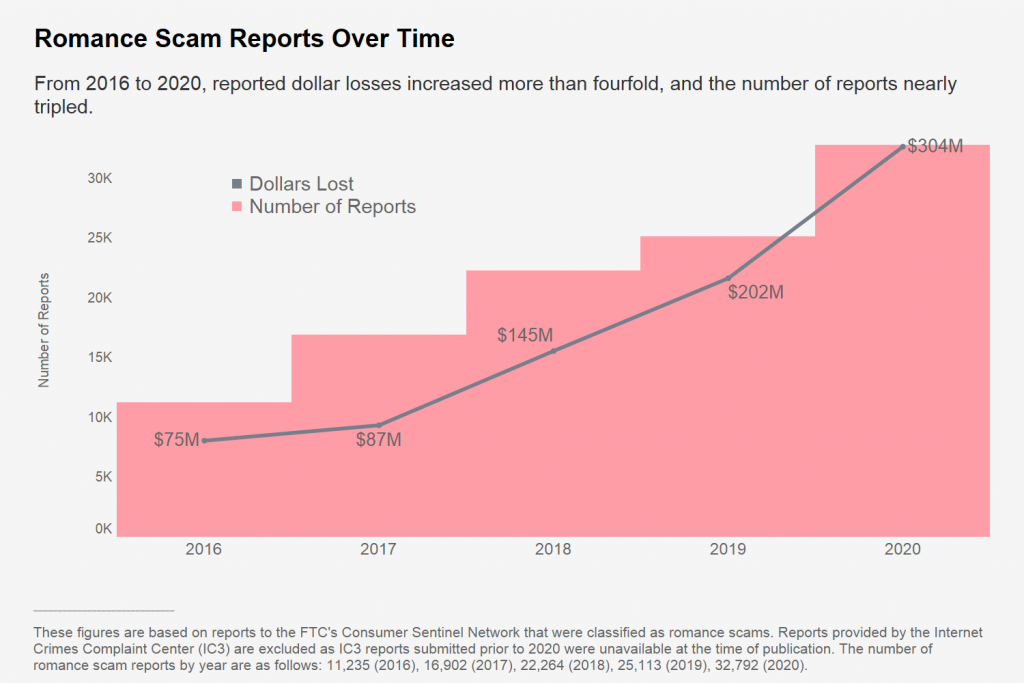Romance scam victims reported $304 million in fraud in 2020, a new high

Deceptive online behavior prompted plenty of emotions last year. Anger, fear, anxiety, frustration — take your pick.
Just don’t forget heartbreak.
Exactly how much heartbreak? The Federal Trade Commission’s scam-tracking team doesn’t monitor emotions, but it does collect complaints from people who say they were victims of romance scams. In 2020, they were worth a record $304 million — an increase of about 50% over the previous year.
Some of the fraud was initiated through dating apps, the FTC said, as people flocked to them during months of stay-at-home orders during the coronavirus pandemic. But social media was an even greater source, the agency said.
“Scammers fabricate attractive online profiles to draw people in, often lifting pictures from the web and using made up names. Some go a step further and assume the identities of real people,” the FTC said. “Once they make online contact, they make up reasons not to meet in person. The pandemic has both made that easier and inspired new twists to their stories, with many people reporting that their so-called suitor claimed to be unable to travel because of the pandemic.”
Once a scammer establishes a connection, the story is a familiar one: Fake tales of woe or loneliness escalate to requests for money in one way or another. In one case last year, for instance, a con artist tried tricking a New York City teacher into believing she was flirting with Gen. Paul Nakasone, the director of the U.S. National Security Agency.
“Gift cards, along with wire transfers, are the most frequently reported payment methods for romance scams,” the FTC says.
The trend line for the numbers isn’t good: Reports of romance scams have tripled since 2016, the agency says, to more than 30,000 in 2020. Over that span, the total dollar value of those reports have quadrupled, from about $75 million in 2016 to the $304 million cited this year.
The median amount spent on any given scam was about $2,500 — “more than ten times the median loss across all other fraud types,” the agency sad.
The FTC’s advice for avoiding romance scams involves a lot of common sense, including, “never send money or gifts to someone you haven’t met in person.”
But the agency also recommends a basic tech tip that is part of the toolkit for journalists, cybersecurity researchers and other practitioners of open-source intelligence (OSINT). What’s good for identifying inauthentic social media campaigns is also good for nabbing dating-scene catfishers.
“Try a reverse-image search of the profile pictures,” the FTC says “If they’re associated with another name or with details that don’t match up, it’s a scam.”







